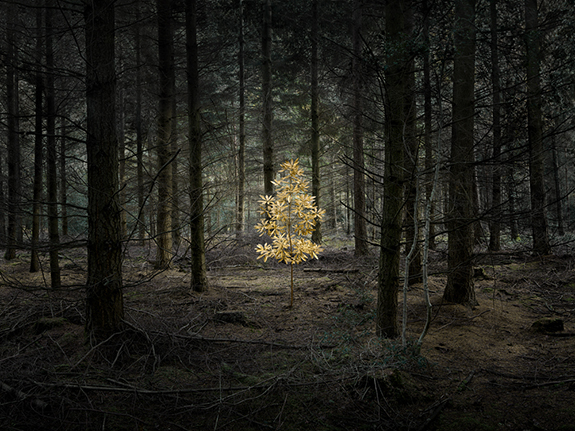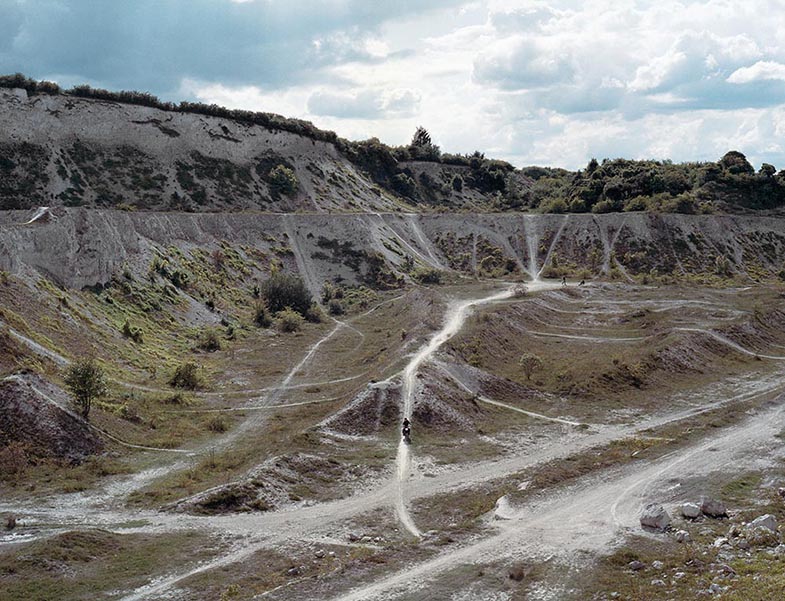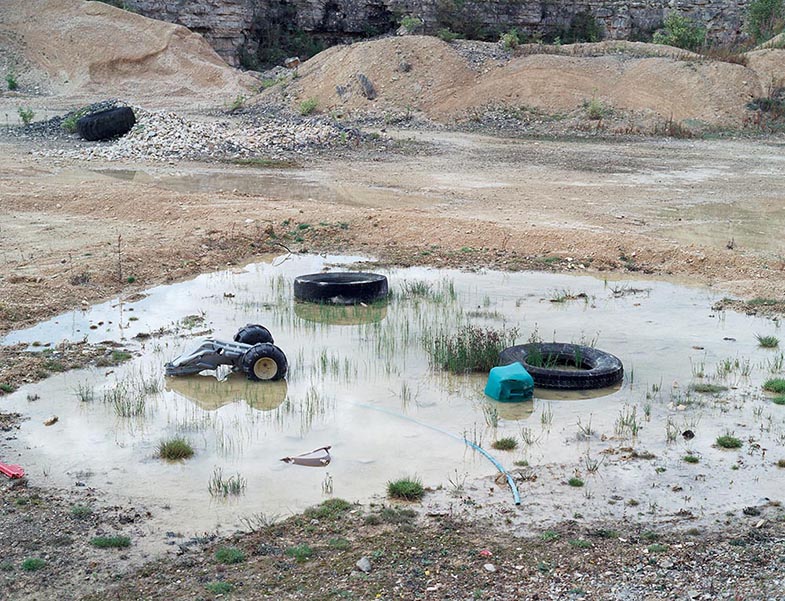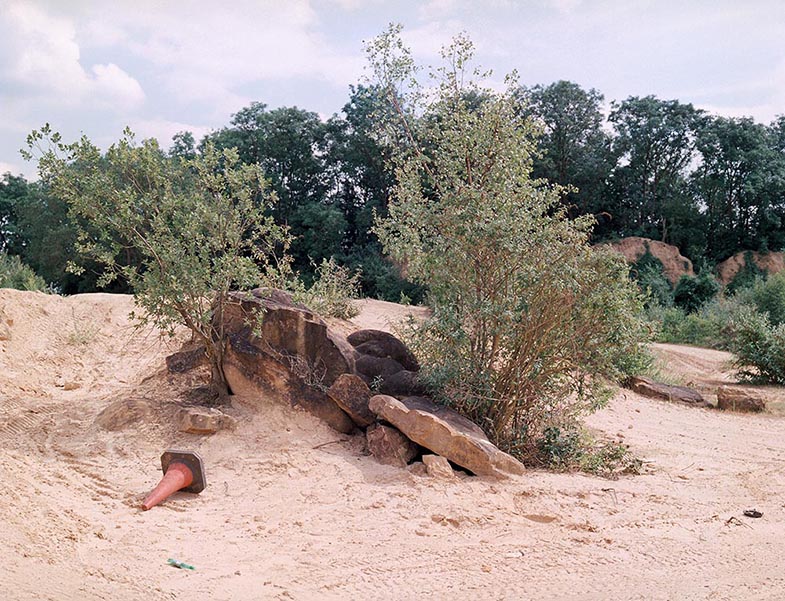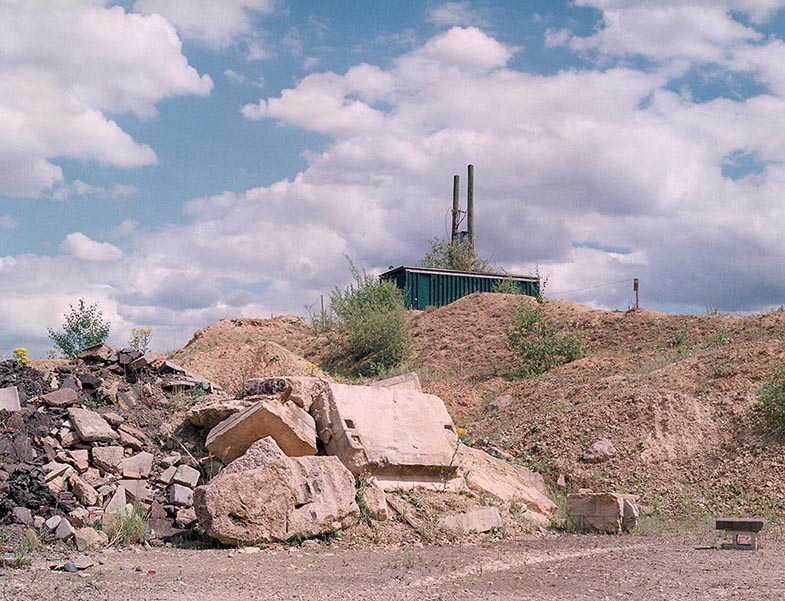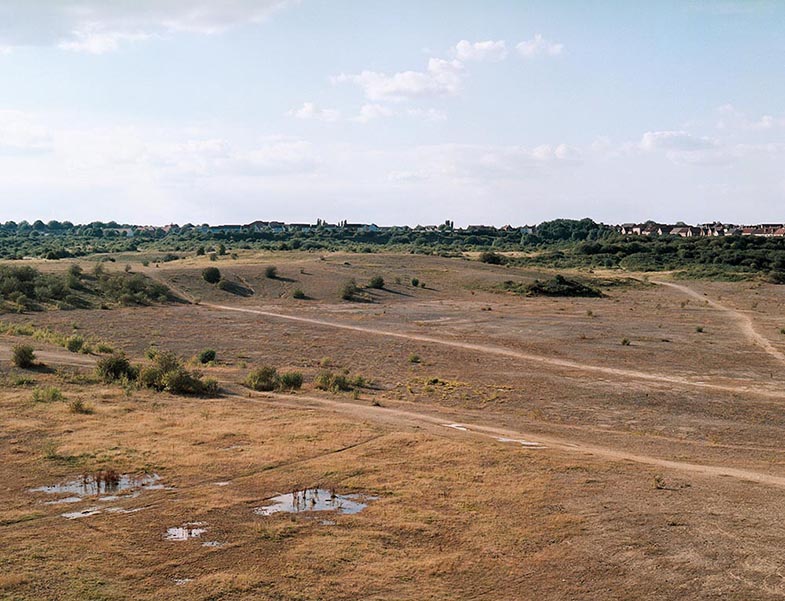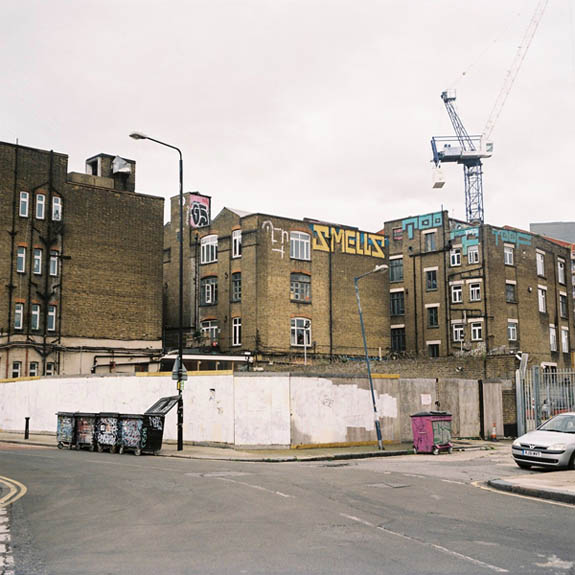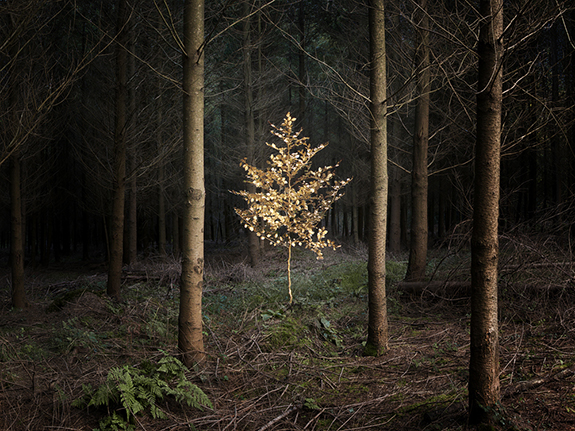
www.EllieDavies.co.uk
I have been working in UK forests for the past four years, making a number of bodies of work which explore the complex interrelationship between the landscape and the individual. Our understanding of landscape can be seen as a construction in which layers of meaning that reflect our own cultural preoccupations and anxieties obscure the reality of the land, veiling it, and transforming the natural world into an idealization.
UK forests have been shaped by human processes over thousands of years and include ancient woodlands and timber plantations. As such, the forest represents the confluence of nature and culture, of natural landscape and human activity. Forests are potent symbols in folklore, fairy tale and myth, places of enchantment and magic as well as of danger and mystery. In recent cultural history they have come to be associated with psychological states relating to the unconscious.
Against this cultural backdrop my work explores the fabricated nature of landscape by making a variety of temporary and non-invasive interventions in the forest, which place the viewer in the gap between reality and fantasy. Creating this space encourages the viewer to re-evaluate the way in which their relationship with the landscape is formed, and the extent to which it is a product of cultural heritage or personal experience.
The forest becomes a studio, forming a backdrop to contextualize the work, so that each piece draws on its location, a golden tree introduced into a thicket shimmers in the darkness, painted paths snake through the undergrowth, and strands of wool are woven between trees mirroring colours and formal elements within the space.
These altered landscapes operate on a number of levels. They are a reflection of my personal relationship with the forest, a meditation on universal themes relating to the psyche, and call into question the concept of landscape as a social and cultural construct.
— Ellie Davies, London, United Kingdom
